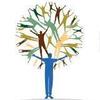Search Results
- All results (2794)
- Offers (2)
- Resources (35)
- Standards (2)
- Organisations (2671)
- News (5)
- Stories (74)
- Quotes (1)
- Guidelines (1)
- Videos (5)
Dare to Lead: public health and company wealth

This is the first in a series of briefing papers analysing the human development impact of transnational corporations (TNCs). The series aims to examine the links between trade and poverty eradication and to illustrate the challenges facing industry as a whole in contributing more systematically to...
TravelHealth
TravelHealth offers practical health advice and vaccinations for travellers.
Accord Interagency Gifts in Kind Standards

Accord Gifts in Kind Standards govern US-based member organisations' Gifts in Kind (GIK) activity.
Business UNusual

Business UNusual, a collaborative publication of the United Nations Global Compact Office and the Global Public Policy Institute, provides an overview of recent partnership activities in the United Nations, as well as the challenges the UN faces in its efforts to engage the private sector and...
Pfizer Global Health Fellows: Expanding Access to Healthcare Through Cross-Sector Partnerships
Pfizer Global Health Fellows: Expanding Access to Healthcare Through Cross-Sector Partnerships, a case study, evaluates the response of Pfizer Inc. to the HIV/AIDs endemic. It focuses on the efforts of the its Fellows Program to support HIV/AIDS service NGOs in developing countries. In this...
Doing Business with the World: The New Role of Corporate Leadership in Global Development

Doing Business with the World, a publication of the World Business Council for Sustainable Development (WBCSD), describes how companies can contribute to global sustainable development through their core businesses in a way that is profitable for the companies and good for development.
Guidelines for Safe Disposal of Unwanted Pharmaceuticals in and after Emergencies

The Guidelines for Safe Disposal of Unwanted Pharmaceuticals in and after Emergencies address the issue of what to do with pharmaceuticals that are left over from humanitarian assistance efforts.
World Health Organisation (WHO) Model List of Essential Medicines

The WHO Model List of Essential Medicines is a list of the minimum medicine needs for a basic health care system. The list has been updated every two years since 1977. The current version, the 17th list, dates from March 2011. It contains over 350 medicines.
Meeting poor people’s needs for access to medicines through responsible business practices

The pharmaceutical industry is increasingly looking to the potentially huge markets within emerging economies. Yet, poor people who live in these countries still desperately lack affordable and appropriate medicines. This paper argues that the industry must put access to medicines at the heart of...
WHO Guidelines for Medicine Donations

WHO Guidelines for Drug Donations, updated in 2010, were developed by the World Health Organization (WHO) in cooperation with major international humanitarian agencies. The Guidelines aim to improve the quality of medicine donations and are intended to serve as a basis for national or institutional...
Dubai International Humanitarian & Re-Development Conference & Exhibition (DIHAD) 1-3 April 2012

DIHAD is a humanitarian aid, disaster management and re-development event that takes place in Dubai every year. DIHAD is recognised as the leading humanitarian event in the region and aims to help facilitate a greater and more efficient relationship between aid agencies, NGO's, suppliers and needy...
People at the heart of sustainable business - the IBLF Annual Review 2008-9

The IBLF annual review examines the way in which the Forum has been contributing to the development of sustainable business, arguing that the members of the Forum are leaders in this field, and that IBLF has a particular understanding of the way in which business solutions can contribute to...
Business and the millennium development goals: a framework for action

This report provides a framework for action on how companies and business coalitions can work with the UN system, governments, and civil society organisations to help achieve the Millennium Development Goals (MDGs), aimed at making globalisation a more positive force for more of the world's people.
World Business and Development Awards

Established by the International Chamber of Commerce in 2000, the biennial World Business and Development Awards (WBDA) are the first worldwide business awards to recognize the crucial role of the private sector, large and small, in implementing the Millennium Development Goals (MDGs).
Decades of instability: The struggle in Guinea Bissau
An attempted coup was not on the plan when UK aid workers drove their humanitarian cargo half way around the world to help one of the planet’s poorest nations.
Hunger, the Silent Killer
They call it the silent killer. Hunger is responsible for more deaths per hour, per day, than any other force on the planet, war, HIV, climate change included.
The saucepan and the corn flour: Ugandan atrocities leave their mark
“We knew the rebels’ message was serious: If your teacher comes to school, tell him to bring a saucepan and the students to bring corn flour.” As a former child soldier told us this story, we listened, bewildered. Why was that message ‘serious’. What did the saucepan and corn flour mean?
Extending women enterpreneurship in India

To reach populations in remote areas, Hindustan Unilever has recruited and trained women in rural areas to act as direct sales operators. This led to the creation of Project Shakti in India which is now being extended to other countries as well.
Freedom from Hunger’s Benkadi Tongorongo association provides micro loans and group support in Mali

In rural Mali, Miama sells rice to support her family, thanks to both a microloan and the group support she receives from Freedom from Hunger's Benkadi Tongorongo association.
Financial inclusion improves Sanitation and Health (FINISH)

FINISH is an action research project set up by UNU-MERIT a research and training centre of the United Nations University in Holland, working in close collaboration with the University of Maastricht.

